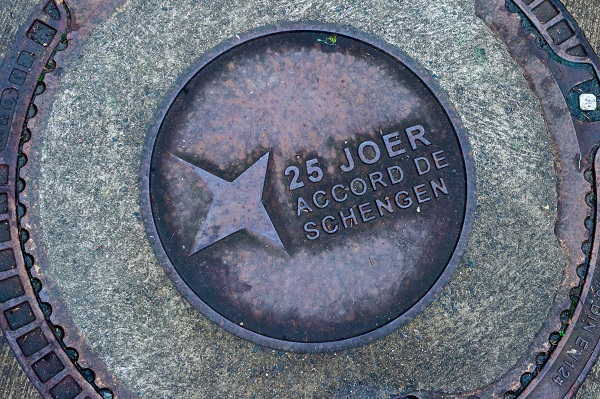 Credit: © SIP / Emmanuel Claude, all rights reserved
Credit: © SIP / Emmanuel Claude, all rights reserved
Today, Thursday 26 March 2020, marks the 25th anniversary of the entry into force of the Schengen Agreement, which was signed on 14 June 1985 near the Luxembourgish town of Schengen before coming into force ten years later, on 26 March 1995.
One of the most notable elements of the provisions implementing the Schengen Agreement was the removal of border controls within what would become known as the Schengen Area. Since its entry into force 25 years ago, the Schengen Agreement has been incorporated into European Union (EU) law through the Treaty of Amsterdam and the Schengen Area now covers 26 European states, including four non-EU Member States (Iceland, Liechtenstein, Norway and Switzerland).
Luxembourg's Minister of Foreign and European Affairs, Jean Asselborn, released a statement earlier today to mark this milestone. Minister Asselborn stated that this achievement is now being put to the test in the context of the COVID-19 (coronavirus) pandemic. He recalled that implementing the rules of the Schengen Area means removing internal border controls and therefore strengthening external border controls.
Nevertheless, European borders have been closed recently in response to the coronavirus pandemic, causing enormous backlogs, blocking repatriation, impeding the commute of cross-border workers (many of whom are on the front line in the fight against the virus) and complicating the delivery of essential goods, most notably medical supplies and food. Minister Asselborn assured that, in these difficult times, Luxembourg has been doing its utmost to facilitate the movement of cross-border workers and to ensure the continued transport of essential goods.
Jean Asselborn added: "Today, the lives of many of our fellow citizens depend on the unhindered transit of workers, citizens being repatriated, essential medical supplies and goods". He continued: "We need solidarity more than ever, and the rules of the Schengen area provide the framework for cooperation which will enable us to face this unprecedented challenge together. Therefore, I call upon all to restore Schengen without delay. The reintroduction of border controls at our common borders can only be occasional and temporary and must be done in accordance with the Treaties".
Minister Asselborn concluded by describing the Schengen Agreement as an "essential" element "to our solidarity and prosperity" and one that must be "preserved".








